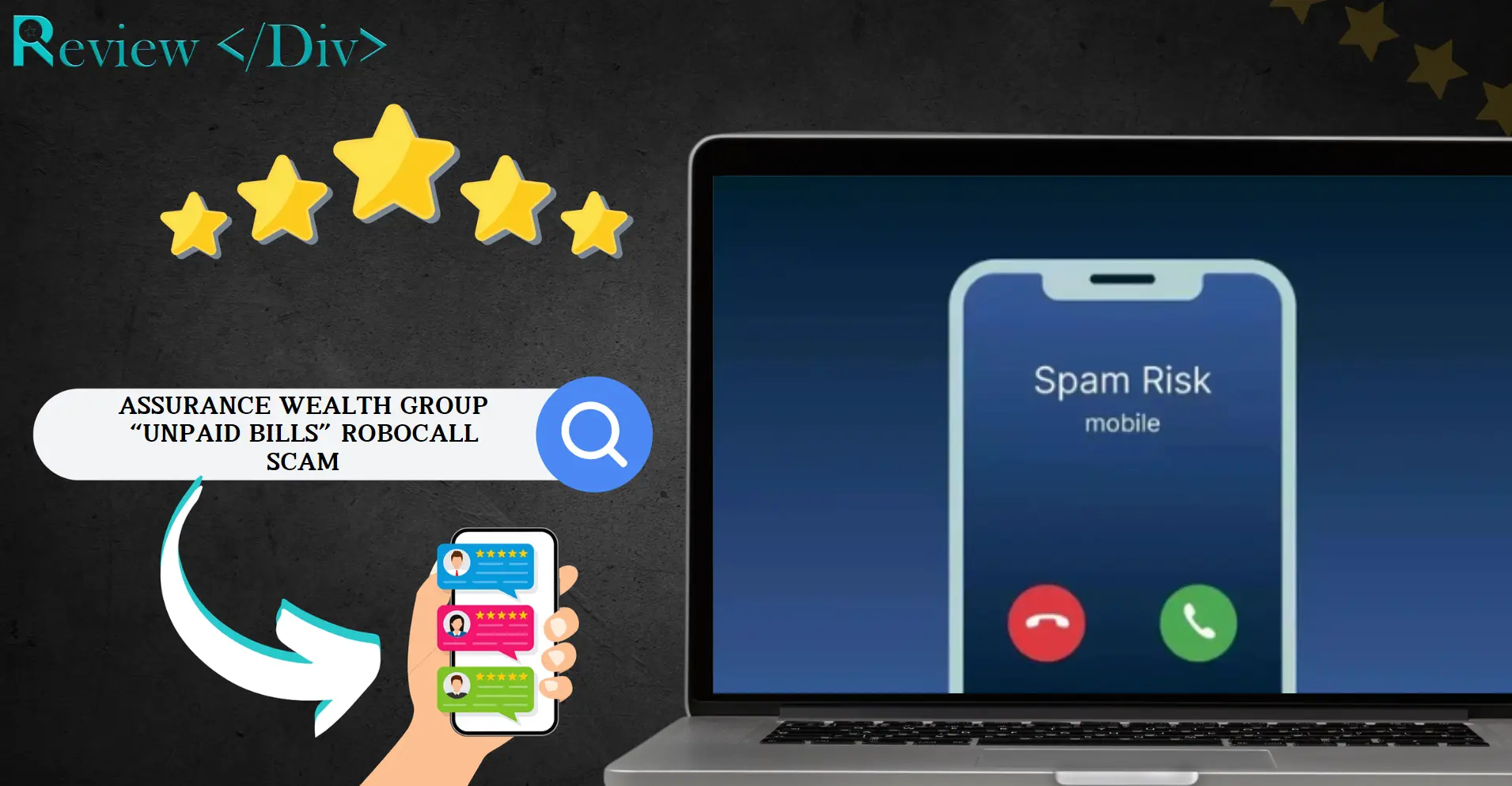In recent months, a new and alarming phone scam has targeted many people across the United States. The scam involves robocalls from a purported collections agency called “Assurance Wealth Group.”
These calls falsely warn people about unpaid bills and threaten to seize their assets or restrict their bank accounts if they don’t act immediately. While this type of scam is not new, the complexity and urgency of the robocall have heightened the concern among many individuals.
In this post, we will check how the Assurance Wealth Group scam operates and what steps you can take to protect yourself.
How Does Assurance Wealth Group “Unpaid Bills” Robocall Scam Works?
The Assurance Wealth Group “unpaid bills” scam begins with a robocall. These calls come from what appears to be a local or toll-free number, which increases the chance that recipients will answer.
The call features a professional-sounding, pre-recorded message from someone claiming to be “Violet” from Assurance Wealth Group. The message follows a script similar to this:
“This is Violet from Assurance Wealth Group calling about potential governmental unpaid bills and invoices. By pressing 1, overdue bills may qualify to be dismissed under the federal Economic Recovery Policy.
If you don’t act now, you may face asset liens or frozen bank accounts. Press 1 now to speak with a specialist about resolving your debt, or press 2 to discontinue notices.”
The message is created to sound authoritative and urgent, which creates a sense of panic in the recipient. It employs high-pressure tactics, such as threatening legal action, asset liens, or frozen bank accounts, to compel the recipient to take immediate action.
However, it is important to understand that Assurance Wealth Group is a fictitious company, and the unpaid bills mentioned in these calls are entirely faked.
How to Protect yourself from these Scams?
To avoid falling victim to the Assurance Wealth Group “unpaid bills” robocall scam, consider the following steps:
Do Not Respond: If you receive such a call, do not press any numbers or provide any personal information. Engaging with the call can confirm to the scammers that your number is active, potentially directing to more scam attempts.
Verify the Caller: If you are unsure about the legitimacy of the call, contact the supposed creditor or company directly using a verified phone number.
Block the Number: Use your phone’s call-blocking feature to prevent further calls from the same number. While scammers use different numbers for each call, blocking numbers can reduce the frequency of these calls.
Jason Thomas is a Computer Science student specializing in AI & ML, dedicated to safeguarding individuals from online threats. Passionate about exposing internet scams, Jason spends his free time identifying and reviewing various fraudulent activities and unethical materials. With a unique blend of theoretical knowledge and practical application, he is a valuable contributor to the fight against online fraud. His commitment to technology and programming fuels his mission to protect people from scams and enhance internet safety for everyone.







